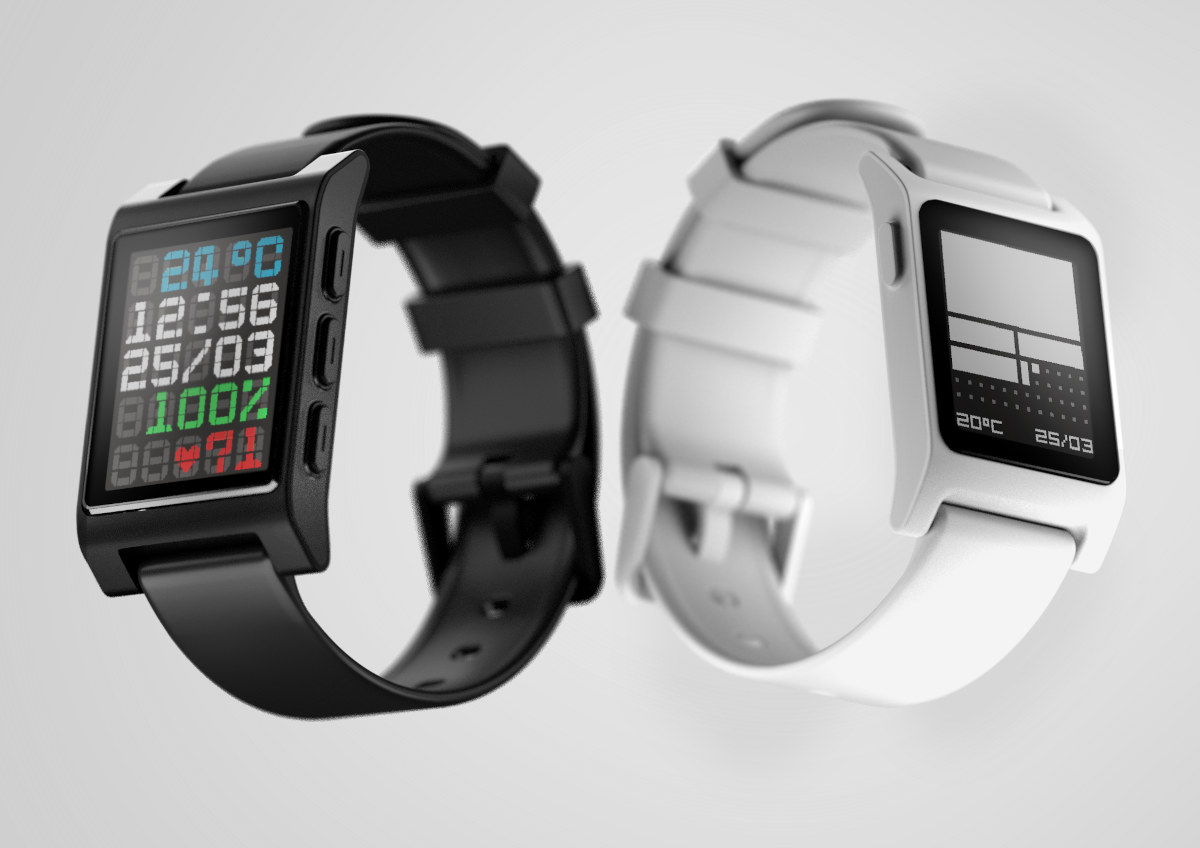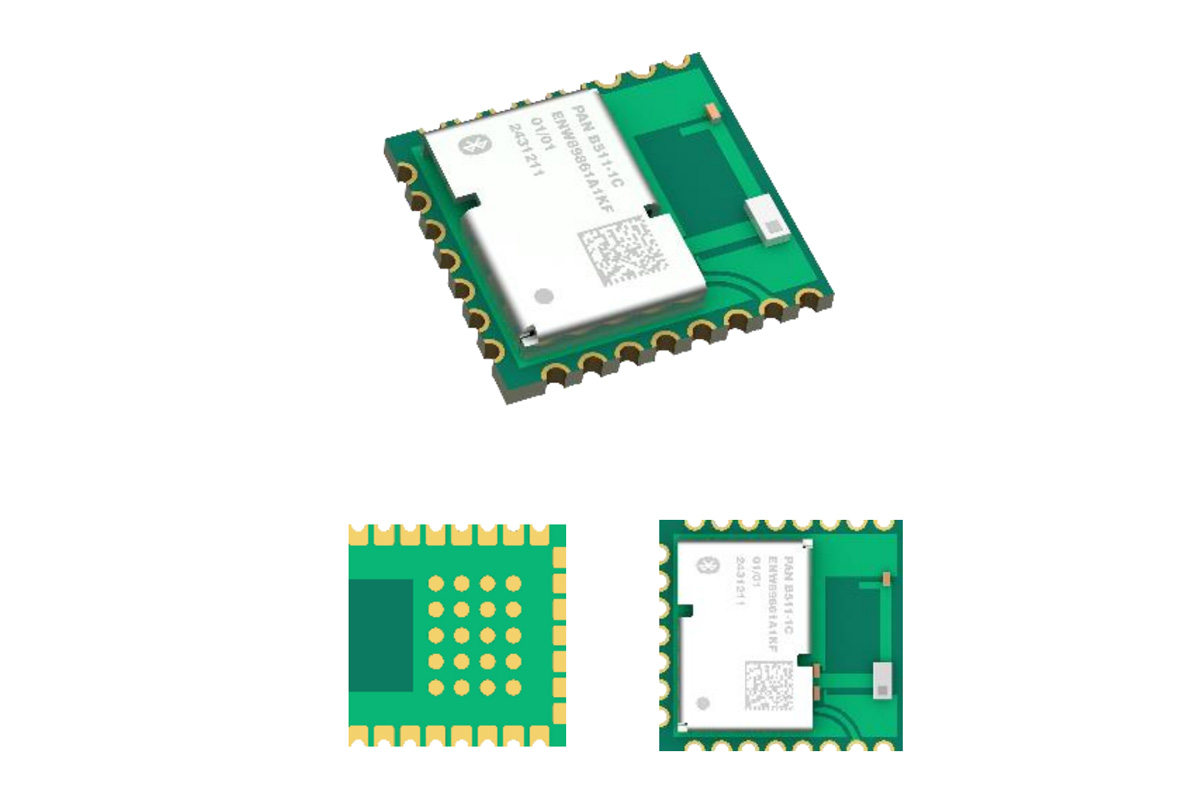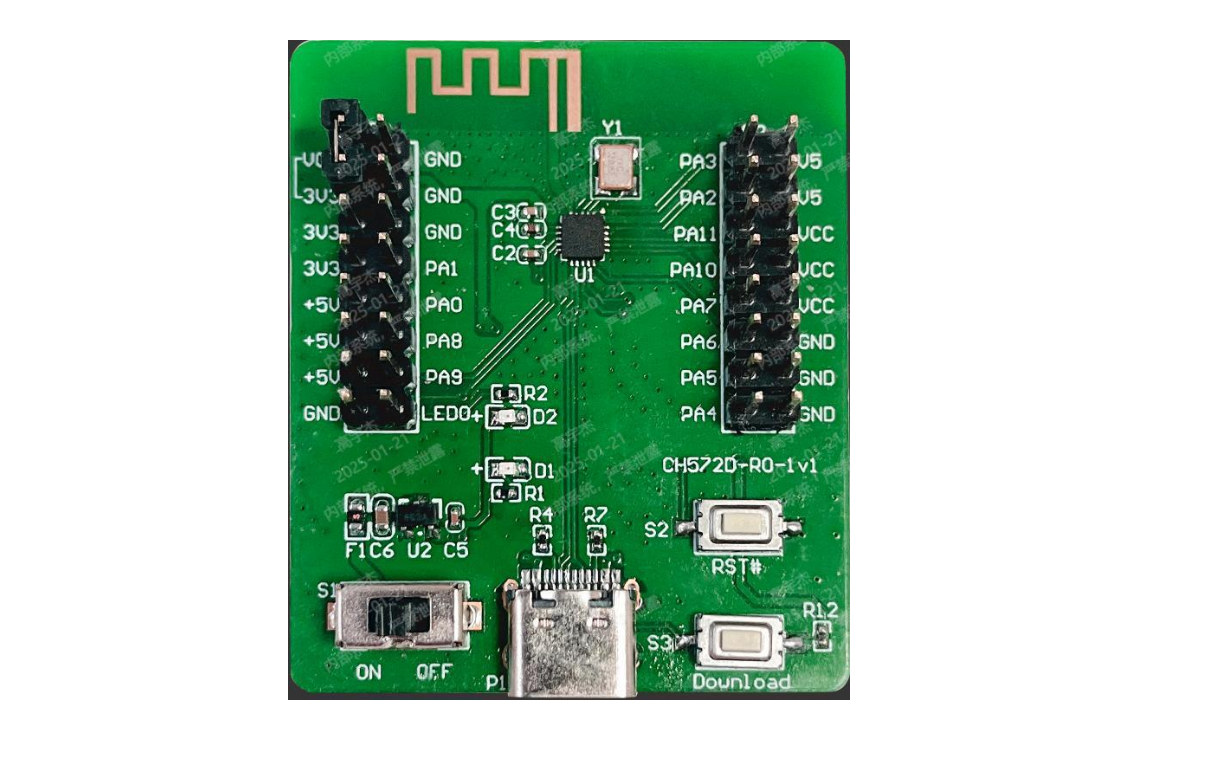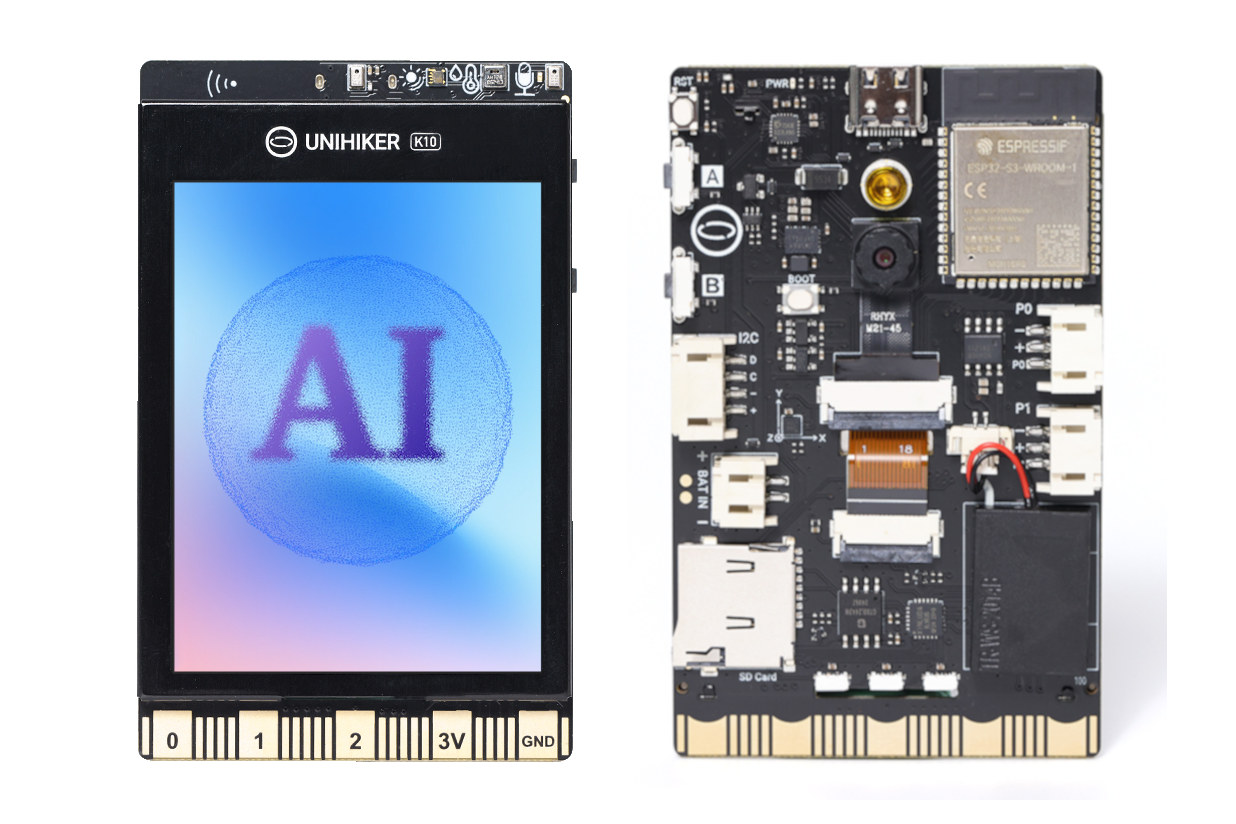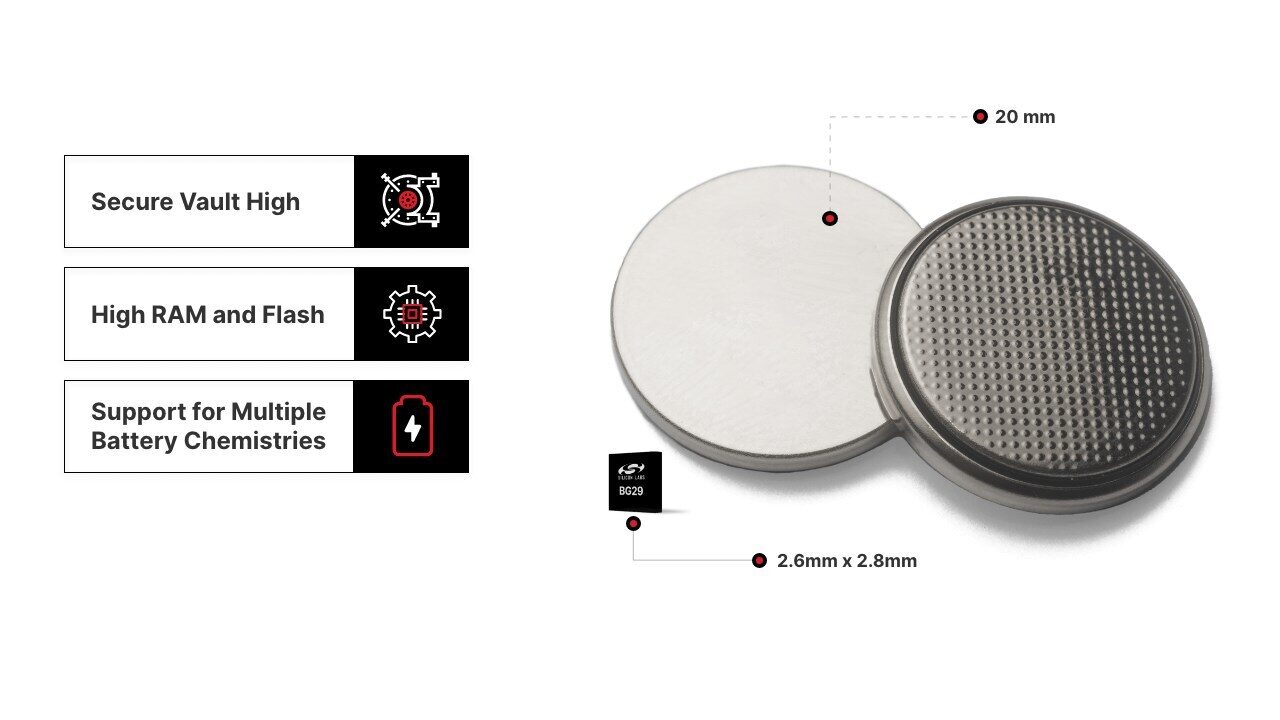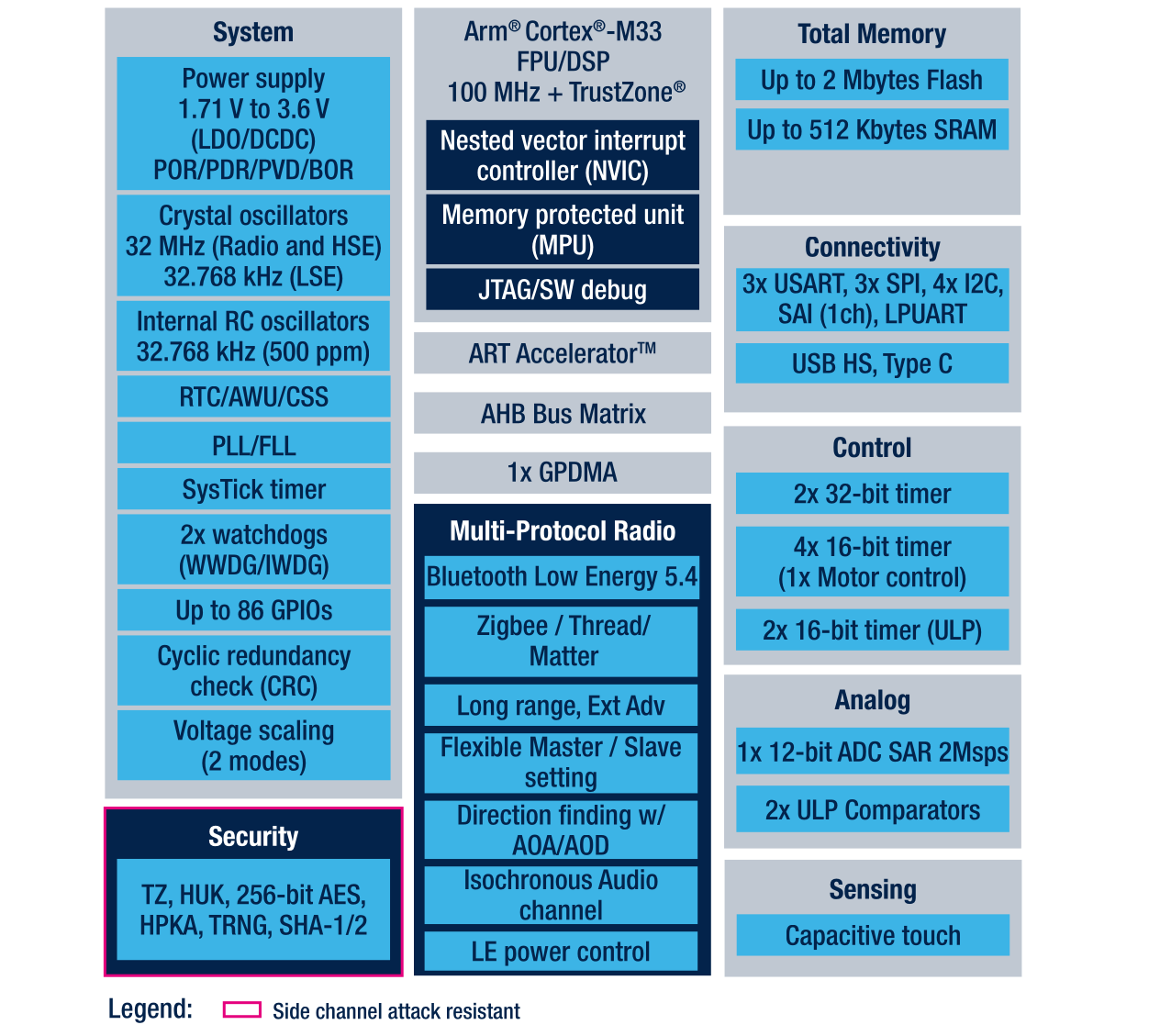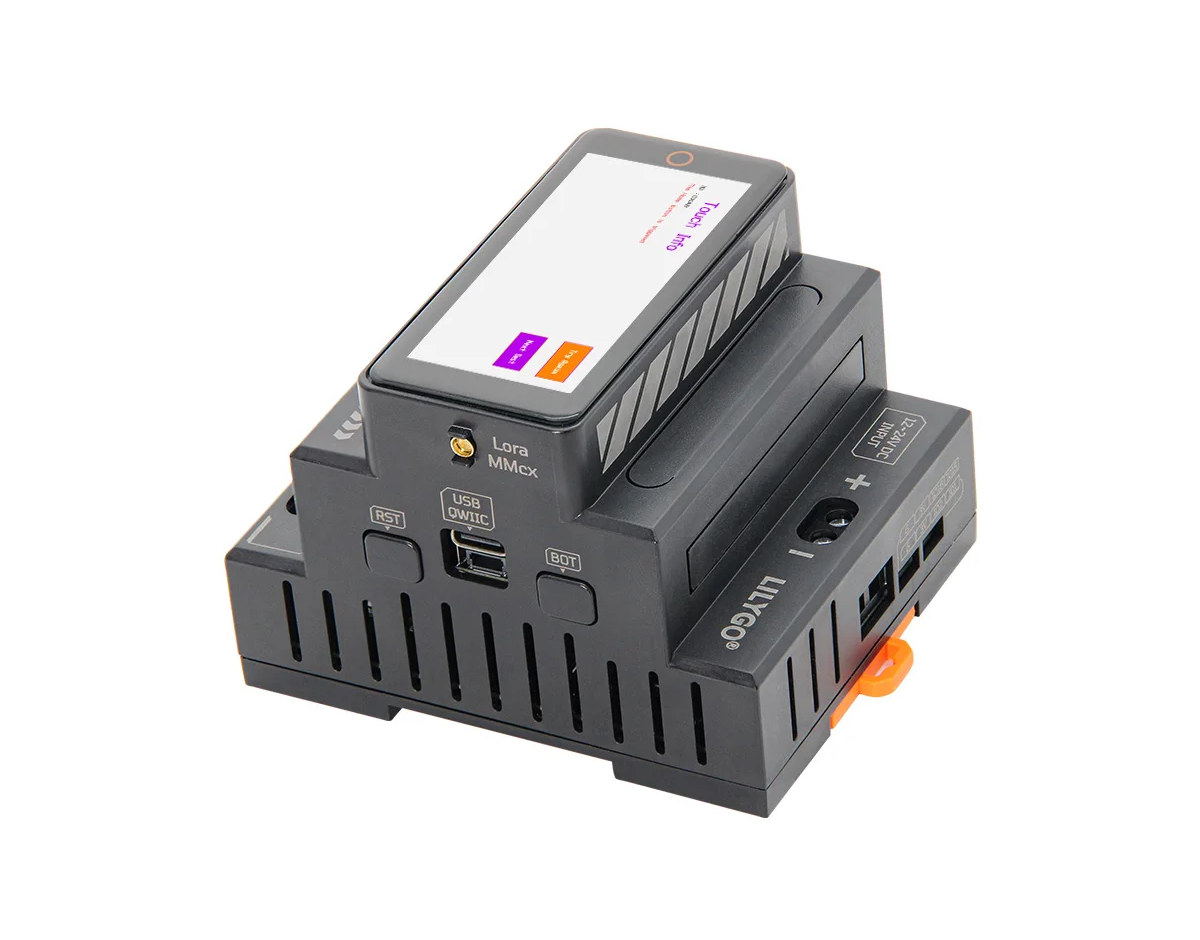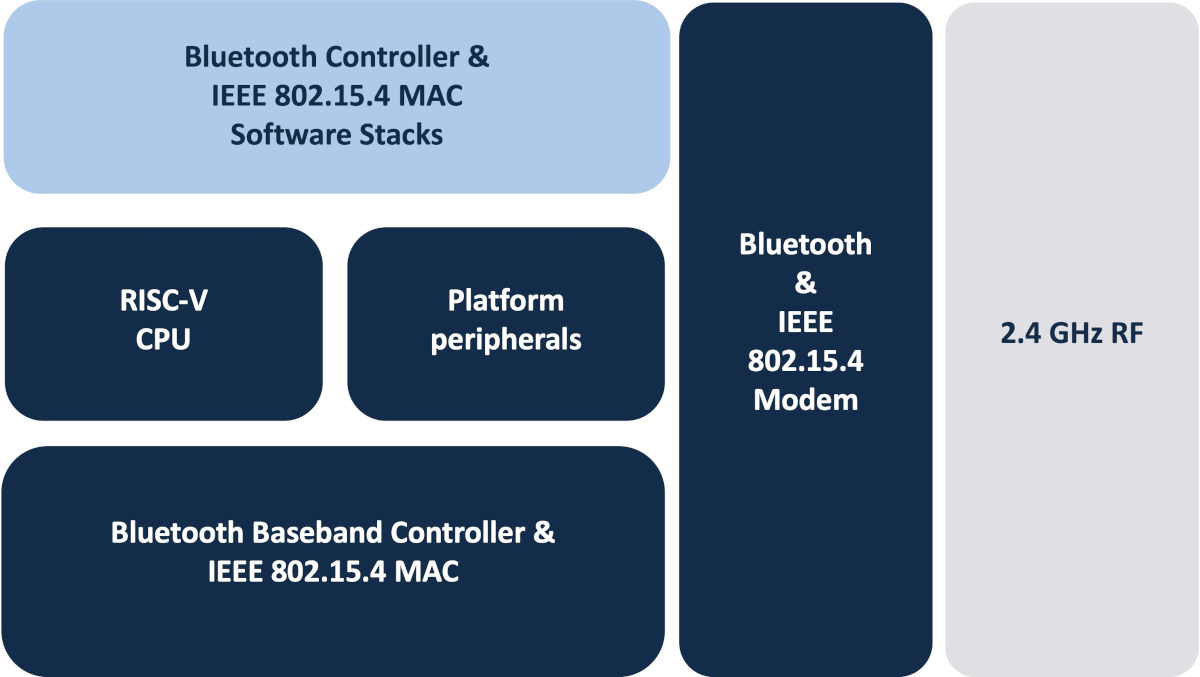The Pebble Smartwatch was first introduced in 2012 with a black and white e-Paper display, a week of battery life, and an amazingly successful Kickstarter company that raised over 10 million dollars. It was followed by the Pebble Time with a color display in 2015, and the Pebble 2 & Time 2 watches followed in 2016. But then it all went south from there, and Pebble’s assets were purchased by Fitbit in December 2016, all projects were canceled that year, and cloud services were discontinued in June 2018. Since then, the community has taken over working on the Rebble project to keep existing watches running, and Google acquired Fitbit in 2021. However, the project is slowly coming back to life. First, Google released the source code for the Pebble smartwatches and Pebble’s founder, Eric Migicovsky, and a team of engineers worked on reviving the project which now culminates with the […]
Panasonic PAN B511-1C Bluetooth 6.0 and 802.15.4 module features castellated holes and LGA footprint
Panasonic industry has recently introduced the PAN B511-1C Bluetooth 6.0 and 802.15.4 module based on the Nordic Semi nRF54L15 SoC and designed for ultra-low-power wireless communication. The compact module integrates a chip antenna, 32MBit flash memory, two Crystals, and the Nordic nRF54L51 which provides a 128 MHz Arm Cortex-M33 microcontroller with Bluetooth 6.0 (LE), Thread, Zigbee, and Matter, along with multiple peripherals such as SPI, UART, I2S, PWM, and ADC. The PAN B511-1C also implements security features to support secure boot, secure firmware updates, cryptographic acceleration, and tamper detection, making it suitable for a range of IoT, industrial automation, smart home, medical (wearables), and battery-powered applications. PAN B511-1C module specification: SoC – Nordic Semiconductor nRF54L15 MCU cores Arm Cortex-M33 with Arm TrustZone @ 128MHz RISC-V coprocessor for software-defined peripheral Memory – 256KB SRAM Storage – 1.5MB non-volatile memory Wireless Bluetooth 6.0 Data rates – 2Mbps, 1Mbps, 500kbps, 125kbps Features AoA / […]
10-cent WCH CH570/CH572 RISC-V MCU features 2.4GHz wireless, Bluetooth LE 5.0, USB 2.0
Patrick Yang, CTO at WCH, has recently unveiled the CH570 RISC-V SoC with 2.4GHz wireless and USB 2.0 (host & device) as an upgrade to the popular CH32V003 general-purpose RISC-V MCU with more features at the same low price (10 cents). CH570 also comes with 12KB SRAM and 256KB flash (vs 2KB SRAM and 16KB flash for the CH32V003), offers up to twelve GPIO, six PWM, I2C, UART, SPI, and a 20-channel key detection module. There’s also the CH572 with the same features, except it also supports Bluetooth LE 5.0. As a side note, I wrote about the CH572 RISC-V MCU with BLE in 2019, but I guess it was scraped likely because it had OTP instead of flash…, and the new CH572 (2025) is different. WCH CH570/CH572 specifications: CPU core QingKe 32-bit RISC-V3C core @ up to 100 MHz (RV32IMBC instruction set and custom instructions) Low-power 3-stage pipeline High-speed […]
UNIHIKER K10 low-cost TinyML education platform supports image detection and voice recognition
UNIHIKER K10 is a low-cost STEM education platform for TinyML applications that leverages the ESP32-S3 wireless microcontroller with vector extensions for workloads such as image detection or voice recognition. The UNIHIKER K10 also features a built-in 2.8-inch color display, a camera, a speaker, a 2-microphone array, a few sensors, a microSD card, and a BBC Micro:bit-like edge connector for power signals and GPIOs. It’s a cost-optimized version of its Linux-based big brother – the UNIHIKER M10 – first unveiled in 2022. Arnon also reviewed the UNIHIKER in 2023, showing how to configure it, use the SIoT platform with MQTT message, and program it with Jupyter Notebook, Python, or Visual Studio Code. Let’s have a closer look at the new ESP32-S3 variant. UNIHIKER K10 specifications: Core module – ESP32-S3-WROOM-1 MCU – ESP32-S3N16R8 dual-core Tensilica LX7 up to 240 MHz with 512KB SRAM, 8MB PSRAM, 16MB flash Wireless – WiFi 4 and […]
Tiny Silicon Labs BG29 Bluetooth LE SoC measures just 2.8 x 2.6mm for wearables and sensors
Yesterday, we wrote about the world’s smallest microcontroller (TI MSPM0C1104), which measures just 1.38mm2 in its smallest package. However, it is designed for general-purpose applications without built-in wireless connectivity. If you need Bluetooth LE in a tiny form factor, Silicon Labs BG29 wireless SoC, with a 2.8x 2.6mm package, is worth a look. The BG29 features a Cortex-M33 core clocked at up to 76.8 MHz, up to 256KB SRAM, up to 1MB flash, various digital and analog peripherals, and security features that make it suitable for Bluetooth LE applications such as wearable health and medical devices, asset trackers, and battery-powered sensors. Silicon Labs BG29 (EFR32BG29) specifications: CPU core – Arm Cortex-M33 @ 76.8 MHz with DSP instruction and floating-point unit Memory – Up to 256 kB RAM data memory Storage – Up to 1 MB flash program memory Wireless – 2.4 GHz radio Protocols – Bluetooth 5.4 Low Energy (LE) […]
STMicro STM32WBA6 2.4 GHz wireless MCU gets up to 2MB flash, 512KB SRAM, USB OTG, and more
STMicro had two announcements yesterday. I’ve already covered the launch of the ultra-low-power STM32U3 microcontroller family, so today, I’ll check the new 100 MHz STM32WBA6 Cortex-M33 wireless MCU family with 2.4GHz radios for Bluetooth LE 6.0, Zigbee, Thread, and Matter designed for wearables, smart home devices, remote weather sensors, and more. The STM32WBA6 is an evolution of the STM32WBA family introduced last year, especially of the STM32WBA54 and STM32WBA55 with many of the same features SESIP (Security Evaluation Standard for IoT Platforms) Level 3 security certification, but gets more memory and flash with up to 512KB of SRAM and up to 2MB of flash. The new STM32WBA6 family also gains a High-Speed USB OTG interface and extra digital interfaces such as three SPI ports, four I2C ports, three USARTs, and one LPUART. STMicro STM32WBA6 key features and specifications: MCU core – Arm Cortex-M33 at 100MHz with FPU and DSP Memory […]
LILYGO T-Connect Pro industrial IoT controller offers Ethernet, WiFi, Bluetooth, LoRa, RS232, RS485, and CAN Bus
LILYGO T-Connect Pro is a DIN rail-mountable, ESP32-S3-based industrial IoT controller with Ethernet, WiFi 4, Bluetooth 5.0 LE, and LoRa connectivity, as well as CAN Bus, RS232, and RS485 interfaces. The controller also features a 2.33-inch touchscreen display, a 10A relay, a 12V to 24V DC screw terminal for power, 5V USB-C port for programming, a Qwiic connector for expansion, and BOOT and Reset buttons. LILYGO T-Connect Pro specifications: SoC – Espressif ESP32-S3R8 CPU – Dual-core Tensilica LX7 microcontroller up to 240 MHz with vector instructions for AI acceleration Memory – 8MB PSRAM Wireless – WiFi 4 and Bluetooth 5.0 LE + Mesh connectivity Storage – 16MB SPI flash Display – 2.33-inch RGB display with 480×222 resolution via ST7796 SPI display controller with touchscreen using CST226SE chip Networking 10/100Mbps Ethernet RJ45 port via W5500 4-wire SPI controller WiFi 4 and Bluetooth 5.0 LE via ESP32-S3 LoRa via HPD16A Semtech SX1262 […]
Ceva-Waves Links200 IP supports Bluetooth LE High Data Throughput (HDT) up to 7.5 Mbps, 802.15.4 for Zigbee, Thread and Matter
Ceva has recently unveiled the Ceva-Waves Links200 multi-protocol platform IP with support for Bluetooth LE High Data Throughput (HDT) technology up to 7.5 Mbps and IEEE 802.15.4 for Zigbee, Thread, and Matter designed for TSMC’s low-power 12nm process. Released in 2016, Bluetooth 5 upgraded Low Energy implementation with four times the range and twice the speed of Bluetooth 4.0 LE transmission which meant up to 2 Mbps over BLE, and even the latest Bluetooth 6.0 specification does not change that. There’s just a new LE 2M 2BT physical layer for Bluetooth Channel Sounding. So I was intrigued when the press release of the Links200 further read: Addressing the rising market demand for faster, more efficient Bluetooth connectivity, particularly for low-power audio and latency-sensitive IoT applications, the breakthrough High Data Throughput mode more than doubles the speed of traditional Bluetooth, delivering a data rate of up to 7.5 Mbps. For this […]


